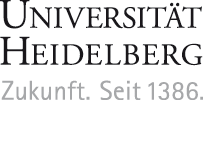Studium Generale of the University of Heidelberg in Retrospect: Civilisations in Dispute
9 February 2007
Intercultural conflicts topic of the Studium Generale — Speakers from the social sciences and humanities on the crucial issues involved
Nine speakers with nine different approaches to the subject of civilisations in dispute. This was the programme of the Studium Generale last winter term. The spectrum ranged from the question "Why Fundamentalism?" and the different manifestations of the phenomenon to peace-building measures in ethnic/cultural conflicts.
In her opening lecture, Prof. Uta Gerhardt of the Institute of Sociology, University of Heidelberg asked not why fundamentalism exists but rather what purpose it serves. Drawing upon concepts proposed by Max Weber she was able to illuminate the subject from a new perspective. One form of fundamentalism, she argued, becomes dangerous when human rights are disregarded and a specific view of the world is forcibly imposed on others. Another form of fundamentalism serves to define and cement the position of a particular group and should be allowed a degree of scope as long as the rule of law is upheld.
Fundamentalism in different cultural contexts was discussed by Prof. Detlef Junker, founder of the Heidelberg Center for American Studies, with reference to the United States, and by Prof. Shalini Randeria (Department of Social Anthroplogy, University of Zurich) in connection with Hindu India, outlining the relationship there between religion, the state and history. Subsequently, Prof. Susanne Enderwitz (Department for the Languages and Cultures of the Middle East, University of Heidelberg) discussed Islamic fundamentalism.
Dr. Manfred Osten (Bonn) devoted his talk to the economic conflict that he feels will inevitably arise between China as a nascent economic power and Europe. Alongside the necessary capital and almost inexhaustible labour reserves, China now has the know-how to establish itself in the first division of the economic powers and even to dictate the rules of play in the near future. An important prerequisite for this, Dr. Osten said, is China's perception of itself as a civilisation that has existed at a high level of accomplishment for thousands of years. This is sustained by a renaissance of the Confucianist persuasion that learning and education constitute a supreme boon and at present Europe has little to pit against this. Accordingly, Dr. Osten advocated increased educational effort with a view to taking optimal advantage of Europe's specific strengths.
Prof. Christoph Schwöbel (Institute of Hermeneutics and the Dialogue of the Cultures, University of Tübingen) approached the topic from a religious viewpoint, inquiring whether the clash of civilisations is a religious war. Prof. Bernd Thum of the Institute of Sociology, Media and Cultural Studies at the University of Karlsruhe inquired into the role of cultural identities in the age of globalisation.
A reassuring outlook was supplied by Prof. Volker Lenhart (Institute of Educational Studies, University of Heidelberg). With reference to examples from regions marked by ethnic/cultural conflicts, such as Sudan, Israel and Palestine or Bosnia-Herzegovina, he indicated prospects for peaceable co-existence, describing peace-building measures in those areas supervised in the framework of a project conducted by of the Institute of Educational Studies, University of Heidelberg.
The final lecture, by Spiegel author Henryk M. Broder, was more essayistic in style. He provided a personal and critical survey of the developments over the last few years between fundamentalist Islam and the attitude of the Europeans.
The nine speakers pinpointed the different aspects and facets of intercultural conflicts, indicating that they can by no means be restricted to the religious dimension. Their lectures also highlighted the important contribution made by the humanities and social sciences to a better understanding of these conflicts and to devising approaches for resolving them.
Please address any inquiries to:
Monika Conrad, M.A.
Studium Generale Office
phone: 06221/542370
studiumgenerale@urz.uni-heidelberg.de
Inquiries from journalists can also be addressed to:
Dr. Michael Schwarz
Press Officer of the University of Heidelberg
phone: 06221/542310, fax: 54317
michael.schwarz@rektorat.uni-heidelberg.de
http://www.uni-heidelberg.de/presse/index.html
Irene Thewalt
phone: 06221/542310, fax: 542317
presse@rektorat.uni-heidelberg.de


